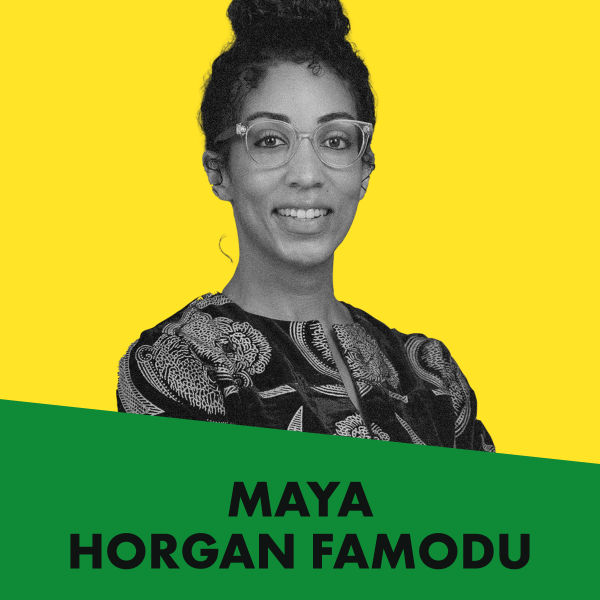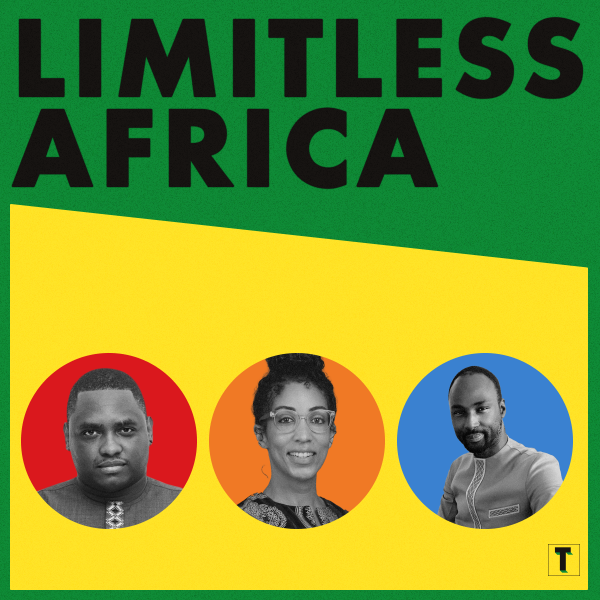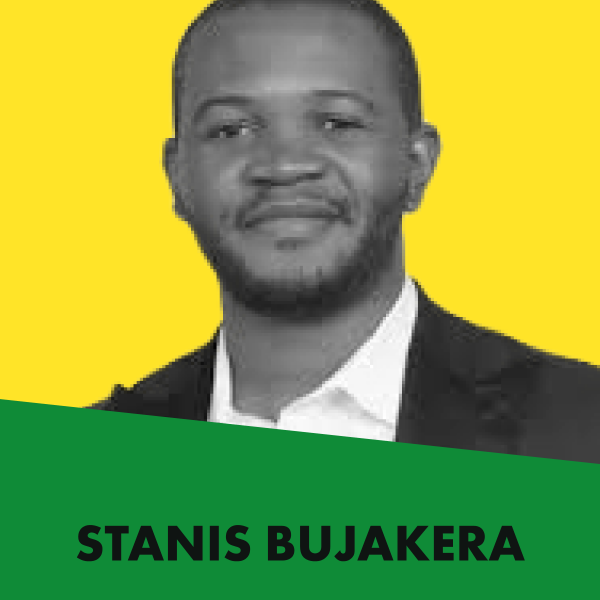Are tech startups the answer to Africa’s unemployment problem?
With guests Gabriel Curtis, Maya Horgan Famodu, Samba Bathily

Episode notes
The African startup scene is making some people very wealthy. But are these companies actually creating jobs?
Transcript
Andela, Jumia, Flutterwave – these are just a few of the African tech startups now worth over a billion US...
Andela, Jumia, Flutterwave – these are just a few of the African tech startups now worth over a billion US dollars. Foreign money is flowing in. Some people are getting rich. We ask our three contributors whether these tech startups will ever employ significant numbers of people on the continent.
Maya Horgan Famodu is a Nigerian-American venture capitalist. She is the founder and managing director of Ingressive Capital. The $10 million venture capital firm targets early-stage tech startups across Sub-Saharan Africa.
Gabriel Curtis is the former minister in charge of investments and public-private partnerships in Guinea, Conakry.
Samba Bathily is a Malian entrepreneur specialising in sustainable clean energy and solar solutions. He founded Africa Development Solutions (ADS) and partnered with Akon the American-Senegalese hip hop artist on the Akon Lighting Africa Initiative.
Did you enjoy the episode? Please fill out our survey here.
Episode transcript
In this episode, we’re talking about tech start-ups in Africa.
Welcome to Limitless, the podcast that asks the questions that matter for Africa. We’re looking for African solutions to African problems.
In each episode, we’re asking three guests one question that matters to Africans. And – no surprise – they don’t always agree.
The Limitless Podcast is supported by the U.S. Department of State and the Seenfire Foundation.
Andela, Jumia, Flutterwave – these are just a few of the African tech start-ups now worth over a billion US dollars.
Foreign money is flowing in. Some people are getting rich. But here’s the question: can tech startups solve Africa’s unemployment problem?
Claude:
First up is Maya Horgan Famodu – a young American-Nigerian venture capitalist, originally from Minnesota in the US. I first met Maya when she was in her early twenties and had just arrived in Lagos. She was inviting Silicon Valley investors to Lagos to discover the tech scene. Seven years later, Maya has a VC firm called Ingressive Capital. She’s invested in some of the biggest startups in Africa… She started by discussing Andela, a Nigeria-based start-up, which trains software developers across Africa. Mark Zuckerberg was an early investor, and it’s now worth $1.5 billion. So Maya, are start-ups creating jobs across Africa
Maya:
You can look, look at it purely by the numbers. I mean, one, I think Andela had a major influence. And so we’re not even we’re not exclusively just talking about employing people. We’re talking about ensuring that people are properly compensated, and getting Nigerian technical talent or Nigerian youth at internationally compensated rates. And I think Andela was definitely a pioneer in that as well as this increased allocation of foreign and local capital to the tech space such that African developers, designers, technical talent at large are getting compensated for the real value that they are actually creating. Initially it was it was problematic. Andela was providing a top tier developers access to international job opportunities and it was kind of pricing top tier developers out of the local start-ups market.
But now we saw that a major push into also compensating with ownership and equity, which is something that hasn’t been historical, or we haven’t seen a lot of that historically in African start-ups, and I think… The increased competition on the employer side has only been beneficial for this new emerging technical talent generation.
Claude:
Your early-stage venture capital firm Ingressive invests in fintech companies like Aboki Africa and Payday Africa. They allow people to send and receive money. Do these startups create jobs?
Maya:
I can say directly and indirectly, some companies that we invest in actually work on the upskilling the providing African nationals with access to international bank accounts and to make things easier so that they can be paid by international employers like we’ve invested in a bookie Africa and payday recently, Payday Africa. And so specific opportunities that make earning easier, as well as wealth building easier, as well as technical talent.
So with Ingressive for Good, we have a non-profit that trains about 100,000 people a year in technical skills. And of their graduating cohorts, their last one of 3000 members had about 80% employment upon graduation.
Claude:
Wow! So what do you think American investors, African investors, venture capitalists like yourself and all the companies that you back – what can you do to ensure that start-ups actually create jobs?
Maya:
Yeah, I mean, I would say one, continue like there are companies like Talent QL and which provide hiring upskilling and placement opportunities, I would say Andela and Moringa School. There’s there’s a number of different organisations across the continent as well as in Nigeria, Semicolon, etc. And on the non-profit side, like Ingressive for Good specifically focuses on increasing the employability of African youth.
And I would say, donating. So supporting non-profits like our own or the other ones that are in the ecosystem that you know, we provide University scholarships, technical skills, training, talent placement, buy laptops and data for African youth who want to learn, I would say, backing these sorts of foundational technical training programmes, whether that’s providing African nationals with international employment opportunities or with the with the ability to earn from foreign employers etc. As well as different sorts of placement solutions, and increasingly sourcing talent locally. When you back an African tech company, and you have the ability to help them source talent, refer them to a local recruiter as opposed to an international one.
I’d say those are really strong starting points and if you just back if you provide people with laptops and data and fund their ideas, they will scale which means they will need to employ more people. So inherently in the nature of building the tech ecosystem backing African tech you will be leading to increased employment of African youth.
Claude:
The next guest is self-made Malian businessman Samba Bathily. He’s launched ventures in over 18 African countries, including Akon Lighting Africa, a renewable energy initiative I worked on with Samba and the American-Senegalese hip hop artist Akon, you probably know who Akon is. Anyway, Samba’s a busy man so I got straight to the point – can we rely on tech startups to create jobs?
Samba:
Tech start-ups could be part of the solution. You know, the principle of startup: out of 1000, maybe 10 are successful. But one needs to understand today start-ups are bringing innovation. And innovation, we should focus them to solve the African problem.
What is our major problem? It’s feeding the continent because you cannot do anything when you are hungry, you know? So, my thinking is that we need to push those innovators to solve the problem of our agriculture because if you take the rest of the continents – Europe and America – they first based their industrialization on agriculture, from slavery time to now.
So the challenge we have today is agriculture. The challenge we have today, it’s health. The challenge we have today is energy. So on and so on. So we should focus those start-ups into that because innovators should be problem solvers, period.
Claude:
How do we get young people interested in traditional industries like agriculture?
Samba:
I’ll give you an example of myself. Two years ago, I was introduced in Burkina Faso by a university professor who say me: Oh Samba, since I know you invest in a lot of youth, there’s a young guy here who was trained in Israel. He has a good technology of drone focused on agriculture. He is looking for 500,000 US dollar to go to the next phase. No problem. He bring him to my hotel we discuss. After discussion, I invite him to come to visit me. He come and visit. I put him with my team, they talk and after we decided to invest and then today he developed this drone that to spraying for the crops, okay. And we do last year 50 hectares where we have like we trained 300 young operators and called them agricultural drone operator. We do that in partnership with the Minister of Agriculture of Burkina Faso.
What it teach us you have more and more young that are interested by that because young people like technology, they like innovation. So that’s what I say will make agriculture more sexy. And in order to have a critical mass of youth in tech and innovation, we need to uplift our education system more to science and technology and mathematics. So that’s mean that public sector have a role to play in order to shift our education system and then that will create the job of tomorrow.
Claude:
My third guest is from the public sector. Gabriel Curtis was Minister for Public Private Partnerships in Guinea until the military coup on September 5th. He’s now got a lot of time on his hands. So, Gabriel, are tech start-ups the answer to Africa’s unemployment problem?
Gabriel:
I think we’ve all been following the development of innovation and tech startups and unicorns. We do have a number of success stories, but it’s still far in between for a continent as wide and as large as the African continent. For the time being it still is very nascent, for a country such as Guinea it is still very nascent and it is not providing meaningful job creation. That said, it can actually lead to a lot of employment because you can unleash a lot of growth sectors, because tech sector can actually fill in a lot of the void that we have on the continent. And that, I think, is something that can provide a lot of opportunities.
Claude:
But can we really leapfrog all these gaps in finance, health, agriculture and energy? Will start-ups ever succeed without government investment in infrastructure?”
Gabriel:
No, I don’t think they can grow. It’s not only the sector, it’s a lot of sectors like the same goes for industry. The same goes for health, or for education that you need, like in everything else. You need the government support, startups are facing an uphill battle. For one you need enough educated people and very well trained people to be able to create and to have all the skill sets that are required. But you also need the basics, electricity, connectivity, place to work, an enabling legal environment, an administration that understands the importance of the tech sector. So you need a number of initiatives and policies and basics that only the government can provide because the private sector on its own will not be able to do that.
Claude:
And how can we get these types of tech startups to contribute back? I mean, in terms of being in a position to pay taxes or create employment, specifically for the youth in Africa?”
Gabriel:
We ought to give the tech sector a break to thrive first. So basically, we shouldn’t over regulate it. They should be support, to help them grow. They should be good policies that are going to benefit the tech sector; provide real opportunities for them; help them gain strength; provide a market. So that the state can actually provide an enabling environment to make sure that the laws and regulations are such that start-ups can actually thrive that they don’t have to pay taxes for three years, they can have either tax abatement or tax holiday, if they need material equipment, that those equipment can come in duty free.
So they really, really need to think outside the box and be flexible, have flexible laws. And it is also important when I speak from the point of view of the public sector is that people in the sector, the bureaucrats, the civil servants, need to be sensitised on the importance of tech sector and the indispensable role that that sector is playing and will play an even more important role in the future.
Claude:
We’re not looking for simple answers on this podcast. We believe Africa’s potential is limitless, and so are the solutions to challenges we face.
Our contributors all had a slightly different perspective. I loved how Maya was really positive – how she argued tech startups and their innovations are creating jobs indirectly even if the start-ups themselves are not employing huge numbers of people.
All three guests were clear on the fact that governments need to step up. But the real takeaway for me was the importance of training young people in science and technology. If tech start-ups get the proper support, they will create jobs in the future. And when they start hiring, we have to make sure young Africans have the skills to take up those jobs.
Thanks for listening. Tell us what you think using the hashtag #limitless africa
You’ve been listening to Limitless, I’m Claude Grunitzky. The Limitless Podcast is a production of TRUE Africa. This podcast is made possible with a grant from the U.S. Department of State and the Seenfire Foundation.
Listen next
"It wasn't just an overnight thing. Seeds were planted."
With guests: Maya Horgan Famodu
LISTEN NOW 55 min
How did I make my first million?
With guests: Maya Horgan Famodu, Moulaye Taboure, Moutagna Keita
LISTEN NOW 15 min







